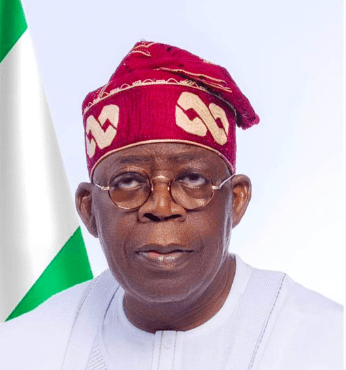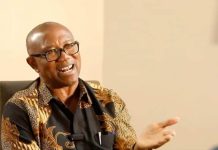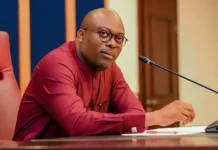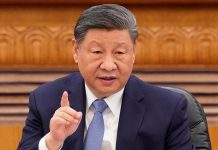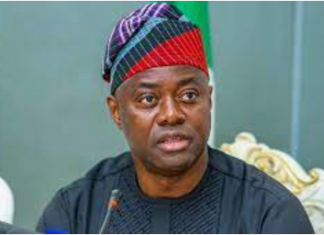

The Presidency has reacted to a report published in the New York Times criticising the Nigerian economy as facing the worst trajectory in a generation.
Special Adviser to the President on Information and Strategy, Bayo Onanuga, responded on Sunday to the report by Ruth Maclean and Ismail Auwal.
According to the Presidency, the feature story, titled ‘Nigeria Confronts Its Worst Economic Crisis in a Generation’ and published on June 11, reflected the typical predetermined, reductionist, derogatory, and denigrating way foreign media establishments have reported on African countries for decades.
Onanuga stated that due to the ‘misleading’ slant of the report, the government needed to clear up some misconceptions conveyed by the reporters regarding the economic policies of President Bola Tinubu’s administration, which took office at the end of May 2023.
He noted that the report painted a dire picture of some Nigerians’ experiences amid the inflationary spiral of the last year and unfairly blamed it all on the new administration’s policies.
He argued that the report, based on several interviews, is at best jaundiced, portraying all gloom and doom without mentioning the positive aspects of the economy or the amelioration policies being implemented by the central and state governments.
Onanuga emphasized that Tinubu did not create the economic problems Nigeria faces today but inherited them.
“As a respected economist in our country once put it, Tinubu inherited a dead economy.
“The economy was bleeding and needed quick surgery to avoid being plunged into the abyss, as happened in Zimbabwe and Venezuela,” he noted.
He explained that this context led to the policy direction taken by the government in May/June 2023, including the abrogation of the fuel subsidy regime and the unification of the multiple exchange rates.
Onanuga highlighted that Nigeria had maintained a fuel subsidy regime for decades, which consumed $84.39 billion between 2005 and 2022 from the public treasury, in a country with significant infrastructural deficits and a high need for better social services.
He also alleged that the state oil firm, NNPCL, had accumulated trillions of Naira in debts due to unsustainable subsidy payments.
He noted that when Tinubu took office, no provision was made for fuel subsidy payments in the national budget beyond June 2023.
“The budget itself had a striking feature: it planned to spend 97 per cent of revenue servicing debt, with little left for recurrent or capital expenditure. The previous government had resorted to massive borrowing to cover such costs.”
Onanuga further explained that like oil, the exchange rate was also subsidized by the government, with an estimated $1.5 billion spent monthly by the CBN to defend the currency against the unquenchable demand for the dollar.
“This low rate led to arbitrage and failures to fulfil remittance obligations to airlines and other foreign businesses, drying up foreign direct investment and investments in the oil sector.
“To address these issues, Tinubu rolled back the subsidy regime and floated the naira on his first day”, Onanuga said.
Despite initial challenges, Onanuga noted that some stability is being restored, with the exchange rate now below N1500 to the dollar and prospects for further appreciation.
He cited a trade surplus of N6.52 trillion in Q1, as opposed to a deficit of N1.4 trillion in Q4 of 2023, and renewed interest from portfolio investors as indicators of improving economic confidence. Loans from the World Bank, AfDB, and Afreximbank are also contributing to Nigeria’s renewed bankability.
Onanuga highlighted efforts to control inflation, especially food inflation, through increased agricultural production and state-led initiatives to sell food at lower prices.
“The Tinubu administration has invested heavily in dry-season farming and provided incentives to farmers.”
He concluded by comparing Nigeria’s economic challenges with those faced by the USA and Europe, emphasizing that the Tinubu administration is working hard to overcome these difficulties.
“Our country faced economic difficulties in the past, an experience captured in folk songs. Just like we overcame then, we shall overcome our present difficulties very soon.”
JUST IN: Tinubu inherited dead economy – Presidency replies New York Times
The Presidency has reacted to a report published in the New York Times criticising the Nigerian economy as facing the worst trajectory in a generation.
Special Adviser to the President on Information and Strategy, Bayo Onanuga, on Sunday, reacted to the report credited to Ruth Maclean and Ismail Auwal’s.
According to the Presidency, the feature story with the title, ‘Nigeria Confronts Its Worst Economic Crisis in a Generation’, published on June 11, reflected the typical predetermined, reductionist, derogatory and denigrating way foreign media establishments reported African countries for several decades.
Onanuga said because of the ‘misleading’ slant of the report, the government needed to clear up some misconceptions conveyed by the reporters as regards the economic policies of the President Bola Tinubu administration that came into power at the end of May 2023.
He said one significant aspect of the report was that it painted the dire experiences of some Nigerians amid the inflationary spiral of the last year and blamed it all on the policies of the new administration.
He also said the report, based on several interviews, is at best jaundiced, all gloom and doom, as it never mentioned the positive aspects of the same economy as well as the amelioration policies being implemented by the central and state governments.
Onanuga went on to say that Tinubu did not create the economic problems Nigeria faces today.
According to the presidential aide, Tinubu inherited them.
“As a respected economist in our country once put it, Tinubu inherited a dead economy. The economy was bleeding and needed quick surgery to avoid being plunged into the abyss, as happened in Zimbabwe and Venezuela,” he noted.
Onanuga said this was the background to the policy direction taken by the government in May/June 2023: the abrogation of the fuel subsidy regime and the unification of the multiple exchange rates.
According to the presidential aide, for decades, Nigeria had maintained a fuel subsidy regime that gulped $84.39 billion between 2005 and 2022 from the public treasury in a country with huge infrastructural deficits and in high need of better social services for its citizens.
Onanuga also alleged that the state oil firm, NNPCL, the sole importer, had amassed trillions of Naira in debts for absorbing the unsustainable subsidy payments in its books.
He said by the time Tinubu took over the leadership of the country, there was no provision made for fuel subsidy payments in the national budget beyond June 2023.
“The budget itself had a striking feature: it planned to spend 97 per cent of revenue servicing debt, with little left for recurrent or capital expenditure. The previous government had resorted to massive borrowing to cover such costs. Like oil, the exchange rate was also being subsidized by the government, with an estimated $1.5 billion spent monthly by the CBN to ‘defend’ the currency against the unquenchable demand for the dollar by the country’s import-dependent economy.
“By keeping the rate low, arbitrage grew as a gulf existed between the official rate and the rate being used by over 5000 BDCs that were previously licensed by the Central Bank. What was more, the country was failing to fulfil its remittance obligations to airlines and other foreign businesses, such that FDIs and investment in the oil sector dried up, and notably Emirate Airlines cut off the Nigerian route,” he said.
Onanuga said to deal with the cancer of public finance, Tinubu on his first day rolled back the subsidy regime and the generosity that spread to neighbouring countries. Then, his administration floated the naira.
He said, “After some months of the storm, with the naira sliding as low as N1,900 to the US dollar, some stability is being restored, though there remain some challenges. The exchange rate is now below N1500 to the dollar, and there are prospects that the naira could regain its muscle and appreciate to between N1000 and N1200 before the end of the year.
“The economy recorded a trade surplus of N6.52 trillion in Q1, as against a deficit of N1.4 trillion in Q4 of 2023. Portfolio investors have streamed in as long-term investors. When Diageo wanted to sell its stake in Guinness Nigeria, it had the Singaporean conglomerate, Tolaram, ready for the uptake. With the World Bank extending a $2.25 billion loan and other loans by the AfDB and Afreximbank coming in, Nigeria has become bankable again. This is all because the reforms being implemented have restored some confidence.
“The inflationary rate is slowing down, as shown in the figures released by the National Bureau of Statistics for April. Food inflation remains the biggest challenge, and the government is working very hard to rein it in with increased agricultural production.
“The Tinubu administration and the 36 states are working assiduously to produce food in abundance to reduce the cost. Some state governments, such as Lagos and Akwa Ibom, have set up retail shops to sell raw food items to residents at a lower price than the market price.
“The Tinubu government, in November last year, in consonance with its food emergency declaration, invested heavily in dry-season farming, giving farmers incentives to produce wheat, maize, and rice. The CBN has donated N100 billion worth of fertiliser to farmers, and numerous incentives are being implemented. In the western part of Nigeria, the six governors have announced plans to invest massively in agriculture.
“With all the plans being executed, inflation, especially food inflation, will soon be tamed.
“Nigeria is not the only country in the world facing a rising cost of living crisis. The USA, too, is contending with a similar crisis, with families finding it hard to make ends meet. US Treasury Secretary Janet Yellen raised this concern recently. Europe is similarly in the throes of a cost-of-living crisis. As those countries are trying to confront the problem, the Tinubu administration is also working hard to overturn the economic problems in Nigeria.
“Our country faced economic difficulties in the past, an experience that has been captured in folk songs. Just like we overcame then, we shall overcome our present difficulties very soon.”
The had earlier reported that Nigeria is facing its worst economic crisis in decades, with skyrocketing inflation, a national currency in free fall and millions of people struggling to buy food.
“Only two years ago Africa’s biggest economy, Nigeria is projected to drop to fourth place this year.
The pain is widespread. Unions strike to protest salaries of around $20 a month. People die in stampedes, desperate for free sacks of rice. Hospitals are overrun with women wracked by spasms from calcium deficiencies.
The crisis is largely believed to be rooted in two major changes implemented by a president elected 15 months ago: the partial removal of fuel subsidies and the floating of the currency, which together have caused major price rises. Nigeria is facing its worst economic crisis in decades, with skyrocketing inflation, a national currency in free fall and millions of people struggling to buy food. Only two years ago Africa’s biggest economy, Nigeria is projected to drop to fourth place this year.
The pain is widespread. Unions strike to protest salaries of around $20 a month. People die in stampedes, desperate for free sacks of rice. Hospitals are overrun with women wracked by spasms from calcium deficiencies.
The crisis is largely believed to be rooted in two major changes implemented by a president elected 15 months ago: the partial removal of fuel subsidies and the floating of the currency, which together have caused major price rises.
Join Television Nigerian Whatsapp Now
Join Television Nigerian Facebook Now
Join Television Nigerian Twitter Now
Join Television Nigerian YouTUbe Now

